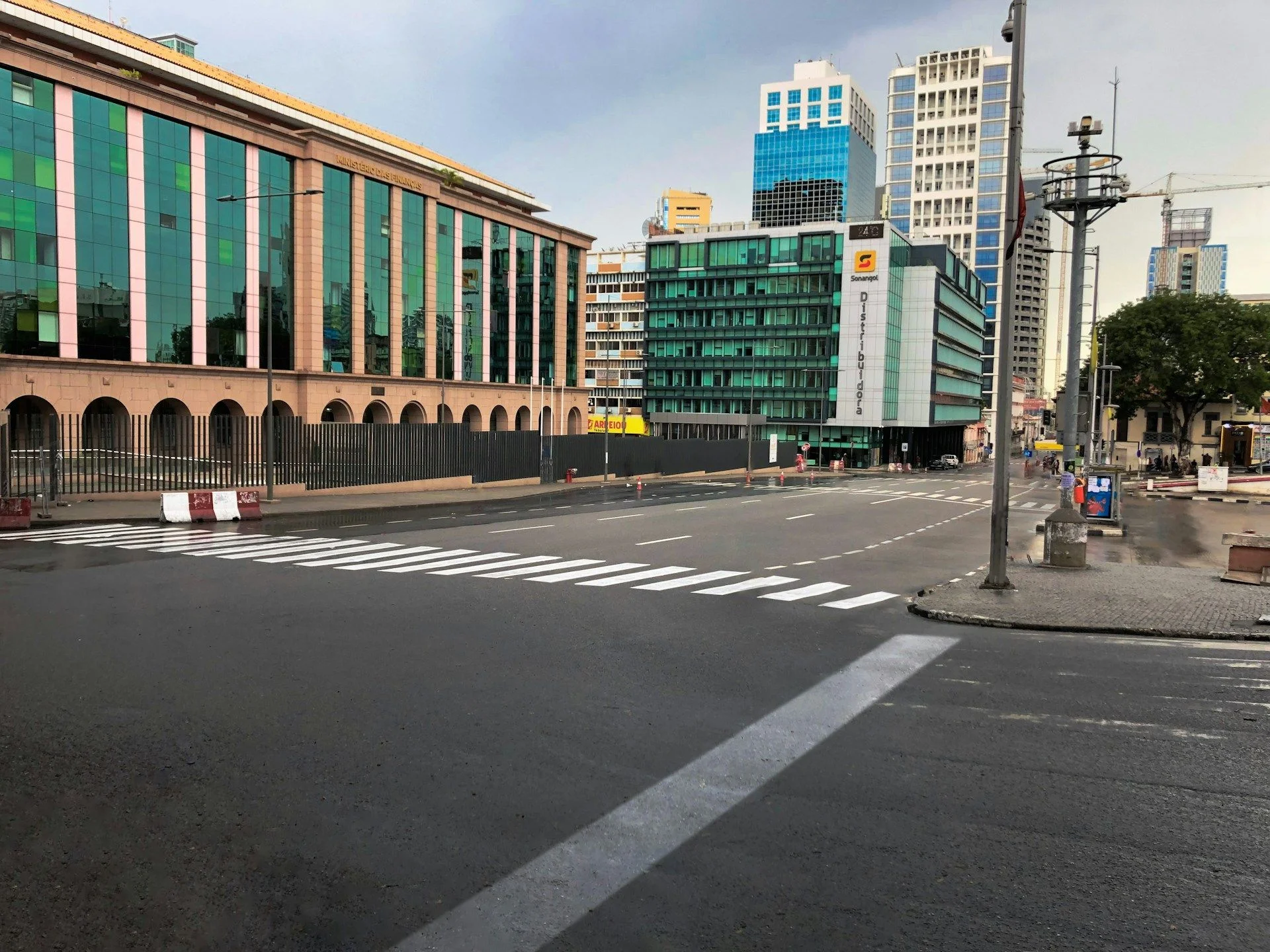Asset Management & Investment Properties in LuandaBusiness core meetsresidential coastline districts

Best offers
in Luanda
Benefits of investment in
Angola real estate
Resource-rich economy with urban expansion
Luanda’s infrastructure is growing fast, with modern projects and international interest.
Rental demand driven by oil and business sectors
Expats and executives create steady need for housing in premium areas.
Long-term potential in an emerging market
Early investors benefit from price entry and future growth.
Resource-rich economy with urban expansion
Luanda’s infrastructure is growing fast, with modern projects and international interest.
Rental demand driven by oil and business sectors
Expats and executives create steady need for housing in premium areas.
Long-term potential in an emerging market
Early investors benefit from price entry and future growth.

Useful articles
and recommendations from experts
Real Estate in Luanda, Angola
Why Invest in Property in Luanda
Luanda, the capital of Angola and one of Africa’s fastest-growing cities, presents compelling opportunities for real estate investors. Positioned along the Atlantic coast, Luanda is a hub of political, economic, and cultural activity. Despite past volatility, recent economic reforms, oil market stabilization, and infrastructure improvements are driving renewed interest in the property market. The city's rising population, strong demand for housing, and ongoing urban regeneration projects make Luanda attractive to both local and foreign investors seeking medium- to long-term returns in an emerging market.
Types of Properties Available
Luanda offers a diverse property market that includes:
- Luxury apartments and penthouses — Typically found in districts like Ilha do Cabo, Talatona, and the Marginal area, these properties cater to diplomats, expats, and corporate tenants.
- Mid-range residential buildings — Gaining popularity in Nova Vida, Camama, and Viana, these developments target middle-income families and professionals.
- Standalone villas — Common in Miramar, Talatona, and Alvalade, often with private security, pools, and gardens.
- Gated communities — Offering controlled access and amenities, such as Luanda Sul developments for expat families and senior executives.
- Commercial properties — Office towers, retail units, and mixed-use buildings in downtown and business parks like Belas Business Park.
- Industrial and logistics zones — Especially in Viana and Benfica, where warehousing and manufacturing spaces are in demand.
Ownership Rules and Legal Considerations
Foreigners are allowed to buy property in Angola, although due diligence is crucial. Key legal points include:
- Land tenure — The state owns all land, but individuals and entities can hold usufruct rights (long-term leases of up to 60 years, renewable).
- Freehold-like rights — In practice, property rights function similarly to freehold ownership for most residential and commercial purposes.
- Foreign ownership — Allowed, but requires registration with the Ministry of Justice and proper documentation of funds entering Angola.
- Legal counsel — Strongly advised to work with local lawyers to ensure title validity and adherence to zoning and planning laws.
Price Ranges and Market Trends
Luanda was once ranked among the most expensive cities globally for expats, largely due to a shortage of quality housing and currency conversion issues. While prices have moderated since the oil downturn of 2014–2017, the market is stabilizing with a more realistic pricing structure. Current average price ranges include:
- Luxury apartments in prime districts: $3,000–$5,000 per m²
- Villas in gated communities: $500,000–$1.5 million, depending on size and location
- Mid-range apartments: $100,000–$300,000 in Nova Vida and Kilamba
- Commercial office space: $20–$35 per m²/month in top-grade buildings
Promising Districts and Infrastructure
Luanda is undergoing significant transformation, and several districts stand out for property investment:
- Talatona — Home to expats, embassies, international schools, and shopping centers. Known for secure housing and modern urban design.
- Ilha do Cabo — A peninsula district offering beachfront living, upscale restaurants, and high-end apartments with ocean views.
- Miramar and Alvalade — Established neighborhoods with colonial architecture, consulates, and proximity to government offices.
- Nova Vida and Kilamba — Large-scale government-backed housing projects with growing demand from middle-class buyers.
- Viana and Benfica — Emerging hubs for industrial, logistics, and affordable housing development.
Investment Scenarios and Buyer Profiles
Investors in Luanda typically fall into these categories:
- Corporate landlords — Provide rental housing to multinational employees and embassy staff on long-term leases.
- Local developers — Build and sell units in Nova Vida and Kilamba targeting middle-income families.
- Expats and diaspora Angolans — Purchase villas and apartments for family use or eventual retirement in Angola.
- Commercial investors — Buy office or retail space in growing business parks with long-term tenant prospects.
- Industrial operators — Acquire land in Viana for warehouse, logistics, or light manufacturing purposes.
Challenges and Risk Factors
While Luanda offers strong upside, investors should be aware of certain risks:
- Currency fluctuations — The Angolan kwanza has experienced volatility; dollar-denominated leases are often used to hedge this.
- Bureaucracy and delays — Despite improvements, building permits and title processing can take time.
- Infrastructure gaps — Outside planned zones, power outages, water supply issues, and informal construction may impact value.
- Market liquidity — Resale timelines can be long; real estate is not a short-term asset play in Angola.
Conclusion: Who Should Buy in Luanda and Why
Luanda is a frontier market with clear potential for those willing to take a long-term view. It appeals to oil-sector professionals, diplomatic missions, regional investors, and members of the Angolan diaspora. High rental yields, increasing housing demand, and large-scale urban renewal projects are reshaping the real estate landscape. If approached with caution, legal guidance, and a strategic location, property investment in Luanda can deliver both financial returns and social impact. For pioneers seeking growth in Africa’s emerging cities, Luanda represents one of the continent’s most promising — and transforming — real estate frontiers.
